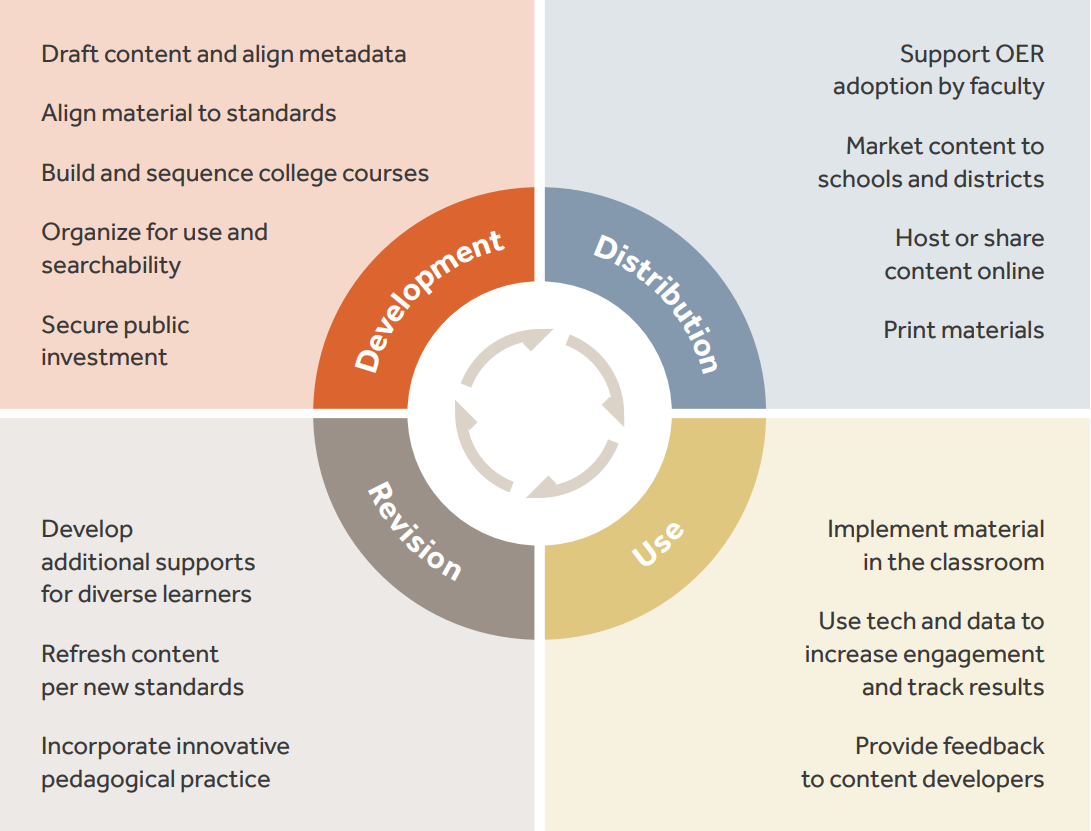In recent years, the collection of open educational resources (OER) has expanded rapidly in K-12 and higher education. Philanthropy has invested heavily in OER because of its exciting potential to meet the needs of diverse learners, accelerate pedagogical innovation, engage the community, and lower costs. As the collection of available OER – the OER commons – has grown, a collection of institutions and organizations that contribute to and draw on the commons has developed around it. Sustaining this “OER ecosystem” of content and stakeholders that transform the content into innovative approaches in the classroom to improve student experiences is vital to realizing the potential impact of OER.
Redstone Strategy Group conducted over 20 stakeholder interviews, as well as a literature review of OER and other open-driven industries to compile this report. The report explores values- and incentives-driven solutions to the core challenges of OER’s sustainability, which include the following.
- Creating and refreshing standards-aligned K-12 content or full-course higher education materials is a time- and knowledge-intensive endeavor.
- OER adoption in higher education requires institutional buy-in from administrators and, particularly at research institutions, shifting norms, and incentives to encourage openness.
- OER adoption is not yet at scale in traditional distribution channels.
- Quality content does not necessarily lead to improved student outcomes on its own.
- In international contexts, OER risks devaluing content development and distribution in local markets, crowding out local authors.
Read the full report at the link below. A text version is available here, as are the graphics from the report, here, here, and here.

